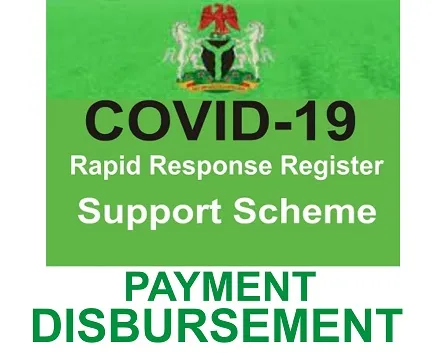Latest Rapid Response Register (RRR) Payment Update Today 19th July 2023.
In today’s RRR Payment Update on July 19th, 2023, we bring you the latest information on the Rapid Response Register (RRR) Payment update, which includes the N30,000 RRR Payment Update, ASCCO COVID-19 RRR Second Batch Disbursement Update, and the Fuel Subsidy Removal Grants disbursement. These initiatives are all part of the National Cash Transfer Programme.
There is renewed hope for the COVID-19 RRR Payment to the Second Batch Applicants of the NASSCO COVID-19 Rapid Response Register as the Senate has approved the $800 Million Loan requested by President Bola Ahmed Tinubu. This development was shared in a report by the National Social Safety-Nets Coordinating Office (NASSCO) through its official Twitter Handle.
To provide some context, the Interim Head of National Cash Transfer Office (NCTO), Dr Ibraheem Adam, previously stated in November 2022 that a loan of $800 Million was secured from the World Bank to support Nigerians. This loan aligns with the Federal Government’s commitment to lift 100 Million Nigerians out of poverty. The disbursement of this fund aims to empower beneficiaries to escape poverty, become productive, and establish sustainable livelihoods.
In our previous update, we mentioned that the Minister of Finance, Budget, and National Planning in the Buhari administration, Mrs. Zainab Ahmed, confirmed the Federal Government’s acquisition of a $800 Million Loan to expand the National Social Safety Nets Programme. This expansion also includes the Fuel Subsidy Removal Grant.
Mrs. Ahmed explained that the disbursement of the fund was approved by the Senate but was delayed due to the transition to the President Tinubu Administration. President Tinubu, in his letter to the National Assembly, requested an amendment to the 2022 Supplementary Appropriation Act to allocate N500 Billion for alleviating the hardships caused by the Fuel Subsidy Removal. He also urged the National Assembly to approve the scale-up of the National Social Safety Nets Programme (NASSP), emphasizing its potential to positively impact approximately 60 million individuals as a significant solution to the current hardships in the country.
With the approval of President Tinubu’s requests, it appears that the COVID-19 RRR Payment to the Second Batch Applicants and the disbursement of the Fuel Subsidy Removal Grant will soon become a reality.
As we previously explained in our COVID-19 RRR Payment update, the Rapid Response Register (RRR) for COVID-19 Cash Transfer is a World Bank-assisted National Social Safety Nets Project initiated by the Federal Ministry of Humanitarian Affairs, Disaster Management, and Social Development. Its purpose is to identify and register the urban and semi-urban poor who have experienced income loss and increased poverty due to the harsh economic impact of COVID-19. The RRR Payment entails a lump sum of N5,000 provided as a monthly cash transfer for six months, totaling N30,000.
The Fuel Subsidy Removal Grant, on the other hand, is a Federal Government Grant designed to alleviate the hardships caused by the removal of fuel subsidies, a policy successfully implemented by the Tinubu-led Administration. Under the former President Buhari Administration’s projection, the Fuel Subsidy Grant amounted to N5,000 per beneficiary for six months. Similar to the Rapid Response Register (RRR) for COVID-19 Cash Transfer, it can be disbursed as a lump sum of N30,000.
However, in President Tinubu’s recent request to the National Assembly, he proposed the disbursement of N8,000 per beneficiary to approximately 12 million households for a period of six months under the Fuel Subsidy Removal Grants Programme, which is coordinated by NASSCO under the National Social Safety Nets Programme.
In response to a critic of the N8,000 Fuel Subsidy Removal Grant, who raised concerns about aggregating vulnerable Nigerians and ensuring that the funds reach them since some might not have bank accounts, NASSCO clarified that vulnerable individuals already captured in the National Social Register have functional bank accounts. The Office also stated that bank accounts will be opened for other households that will be included in the cash transfer intervention register.




















